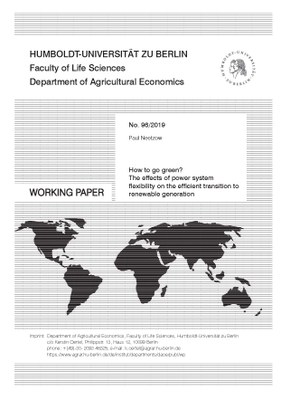New paper on the impact of power plant flexibility on the efficient transition to renewable generation
The paper analyses how the endowment with flexible or inflexible conventional power plants influences the transition to renewable energy (RE) generation. It finds that the existence of inflexible fossil generators hampers early deployment of VRE. However, deployment speed increases after VRE begin to substitute generation from inflexible generators, which happens after VRE and inflexible capacities strictly exceed demand together. At this time, the decreasing use of inflexible fossil generation is usually accompanied by an increasing utilization of flexible generators. Nevertheless, constructing additional flexible capacities is only profitable under restrictive conditions. By contributing to a better understanding of the impact of flexibility on efficient VRE deployment, this work may facilitate an efficient transition process.

Neetzow, Paul. 2019. “How to Go Green? The Effects of Power System Flexibility on the Efficient Transition to Renewable Generation.” Working Paper des Departments für Agrarökonomie No. 96/2019. Berlin.
